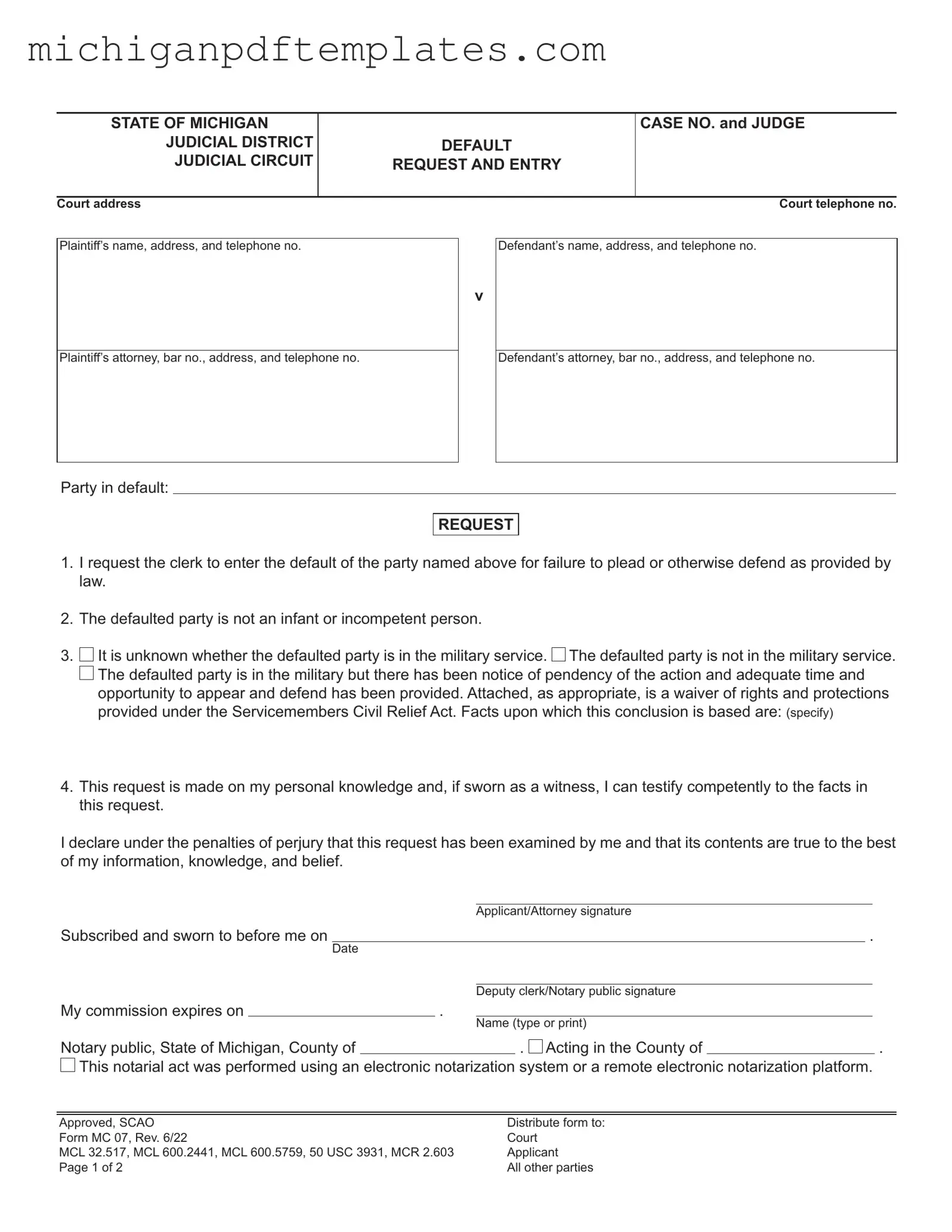Fill in Your Michigan Mc 07 Form
The Michigan MC 07 form is a legal document used to request the entry of default against a party who has failed to respond to a lawsuit. This form includes sections for the applicant to provide necessary details about the case, including the parties involved and the amount being claimed. Completing this form accurately is essential for moving forward with legal proceedings, so be sure to fill it out by clicking the button below.
Get Your Form Now

Fill in Your Michigan Mc 07 Form
Get Your Form Now

Get Your Form Now
or
▼ PDF Form
Finish this form quickly and move on
Fill in and complete Michigan Mc 07 online quickly.